Some people seem to think that you have plenty of free time when you live in a Tiny House, and that it’s easy and simple. That’s what I thought too! But actually, living off-grid isn’t that easy. It means you have to spend more time organizing and maintaining basic utilities compared to a regular house. After two years of living here it’s time for a review.
Water supply
You’ll need a water tank, and you’ll need to insulate it to protect it from sunlight and frost. You’ll need to lay pipes and those need to be insulated as well. You’ll need a pump, which might break down every now and then. And in my experience, it’s never simply a matter of buying, hooking up and have everything run perfectly. Complex connections, setting the right water pressure, and again this pump needs to be protected from frost. The pipe towards your house can best be dug in, but it needs to come out of the ground somewhere and at that point it’s sensitive to frost. The tank can start to leak if you’re not careful, and you’ll need an overflow where the surplus of water can escape to where it’s desirable. Preferably into a second tank which you’ll need to figure out. The tank including the pipes need to be cleaned thoroughly at least once a year. You’ll need a water filter system and this material needs to be replaced in time. You need to make sure that dirt in the rain gutter is collected and that filters are checked and cleaned regularly.
I have a Berkey water filter which needs to be cleaned regularly as well and for that I need a pressurized faucet and clean tap water. This means I need to do this at a friend’s place.
And sometimes you can run out of water when it doesn’t rain for a long period. Then you’ll need to fill jerry cans, shower at a friend’s or wash yourself by the sink, do the dishes with a kettle of hot water, etc. It all takes up a lot of time. When I move to another location in the future, I at least want a (shared) back-up connection to the water supply. Water is the biggest hassle – a basic need you can’t do without, and in my experience living off-grid means a lot less comfort when it comes to water. But I wouldn’t have wanted to miss this experience! It has made me aware of the value of water, how much we use it and it has brought me the pleasure of feeling grateful for my water
Laundry
Laundry drying inside the house is only possible when you ventilate thoroughly and stoke it up warm enough. I’ve had some bad experiences with that so in the wet season the local laundromat picks up and delivers my laundry for me. That’s nice and easy for me. When the weather is fine and I have enough water, I can do my laundry at home. Roll my washing machine to the bathroom, fill it with water, and wash. And hang it outside to dry, but only if doesn’t start raining, of course ;)
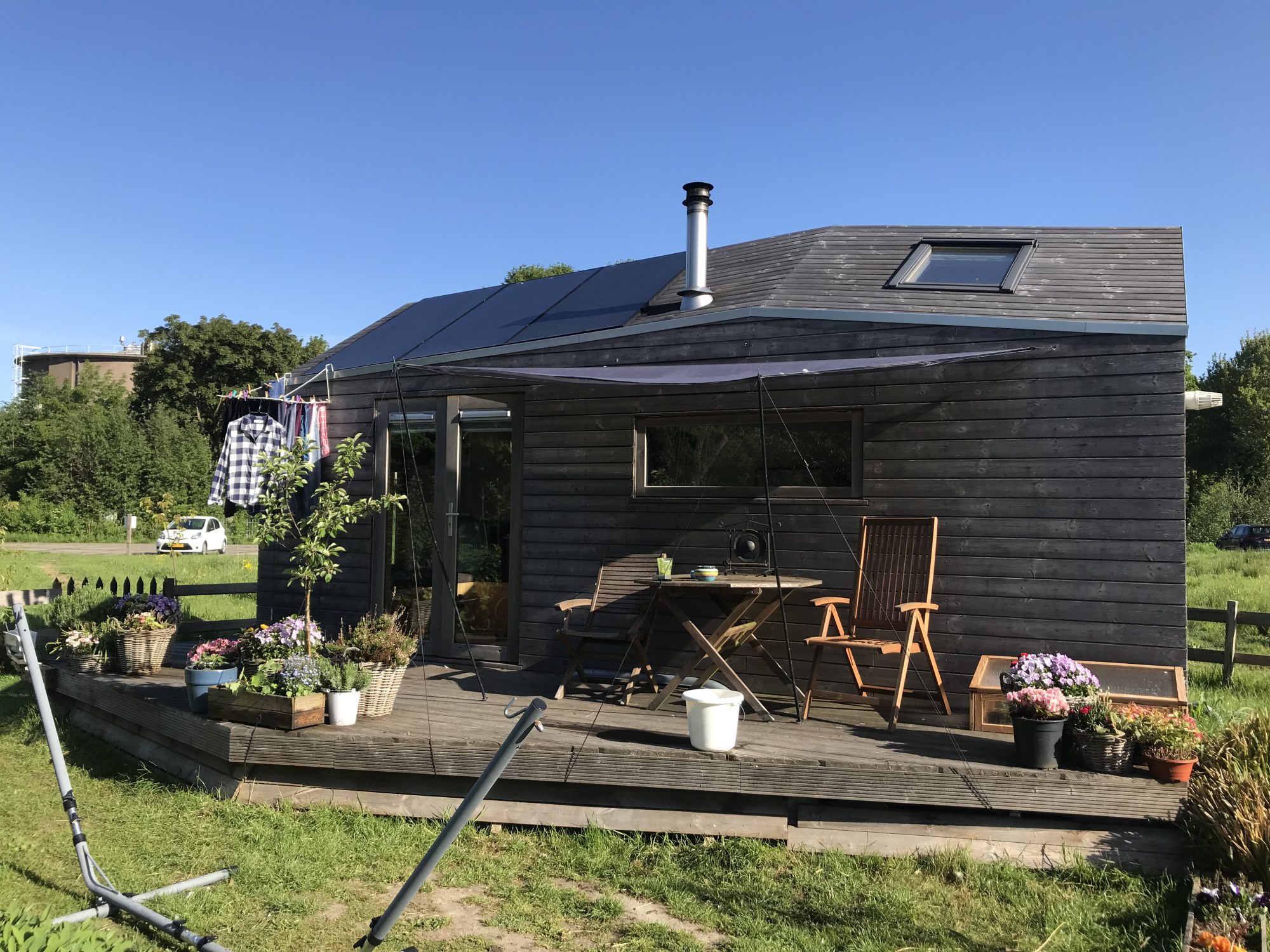
Power supply
The solar panels need to be cleaned regularly, otherwise the yield decreases significantly. In the darkest months I need a generator every now and then, so I need to have enough fuel on standby. Other than that, the maintenance for this subject is relatively low. Unless there’s a technical failure of course, but then I’ll call Johannes or Cees from Victron Energy :)
Heating
The wood burner can only burn when there’s enough wood, so I need to make sure there’s enough firewood, briquettes and night briquettes. Because my storage space is limited, I need to restock regularly. The stove pipe and chimney have to be cleaned by the chimney sweeper once a year at least. A wood burner takes a lot of your time: making the fire, keeping it going, sweeping ash, emptying the ashtray, getting firewood from outside and so on. But I love my little burner!
Gas
That’s really not so bad, I refill my tanks 3 times a year. That’s also because I don’t shower every day. Showering uses up way more gas than cooking. But you do need to keep an eye on the tank and have it refilled when it’s running empty. And the geyser had a lot of problems in the beginning.
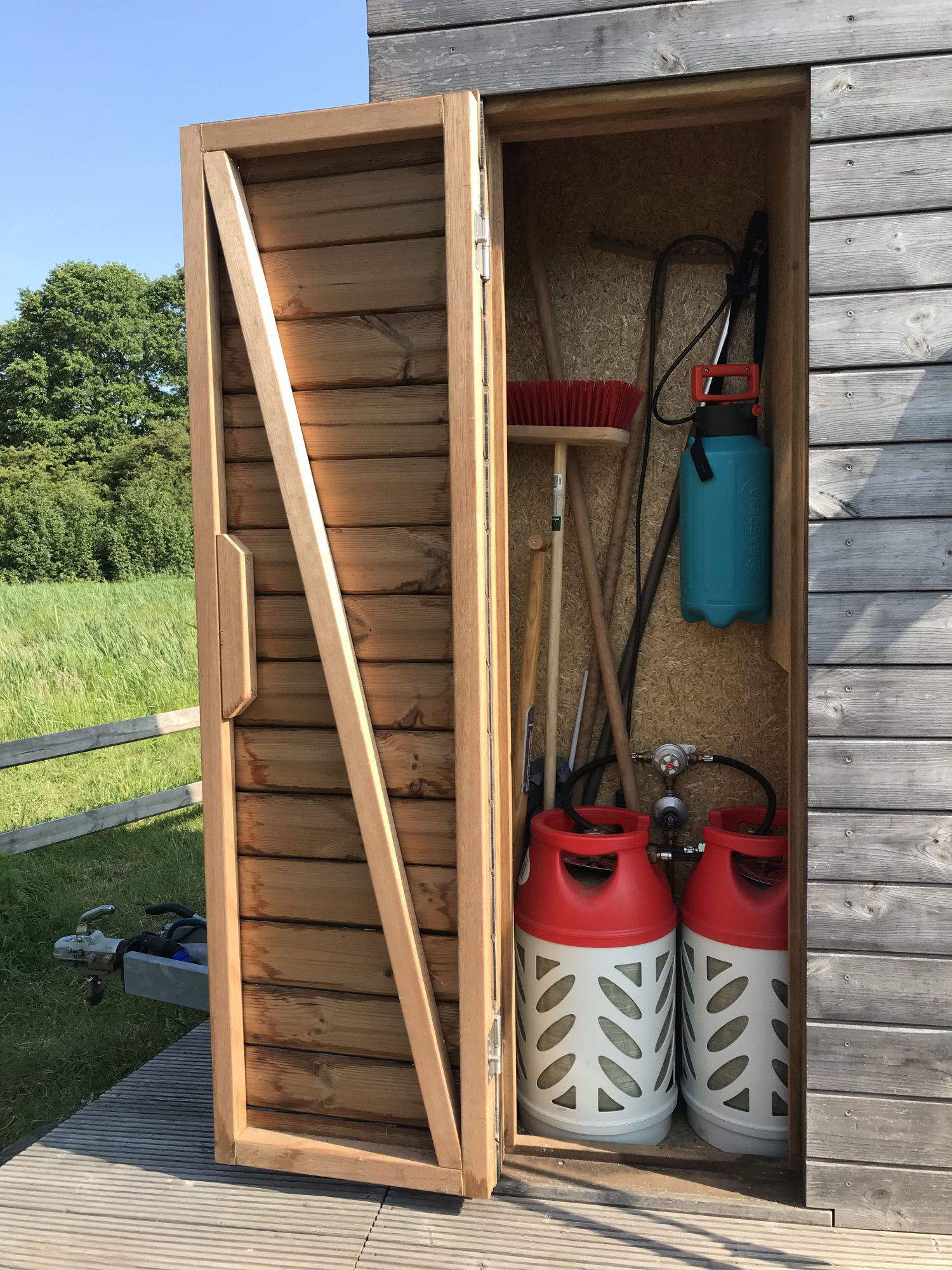
Cleaning
Sure, you can clean it in a heartbeat, a Tiny House. But it gets dirty really quickly too. And the dust! I never thought it would become so dusty in a Tiny House. One of my least favorite jobs is cleaning the composting toilet. It’s just a hassle to clean it with all its ridges and edges. Other than that, it works fine by the way, and emptying the bucket every few weeks doesn’t bother me at all. The windows get dirty pretty quickly too, but cleaning them doesn’t take much time. I don’t have a vacuum cleaner, so I just keep on sweeping the floor. When you have pets, the house gets dirty even more quickly. But I wouldn’t miss them for the world.
Wear and maintenance
In a small house you use every m² intensively. That means more wear and tear and things get dirty more quickly. So you’ll need to repaint more often, varnish the staircase every now and then and wash your pillow cases more often. Things break down more quickly. But since you need more stuff, it makes sense to choose quality and reparability. That helps the environment as well!
Conclusion
So yes, in a regular house that’s connected to all utilities you’ll probably spend less time on these things. Especially when you have the luxury of a dishwasher and dryer. But I wouldn’t want to go back despite this. I can do very well with a little less luxury and I’ve noticed how flexible I can be. And I have so much more appreciation of the basic things in life. You do however get the chance to have fewer working hours, because of your lower living costs, so you do win in time. And, of course, you don’t have to live off–grid; you can just as easily be connected to regular utilities in a Tiny House. These are choices you’ll have to make for yourself. But it’s good to be aware of the pros and cons of both options.
Off-grid:
Advantages: no electric bills, independence, no municipal blackouts, you have more options for locations where you can put your Tiny House, you become very aware of your usage and you use a lot less energy and water.
Disadvantages:
High-maintenance, takes time to figure out what kind of equipment you need, you need technical knowledge OR handy friends, purchase costs are high, takes up relatively more space, you can’t use all the equipment you might want, in the summer you have a power surplus and your panels are idle for most of the day.
Connected:
Advantages: always plenty of electricity and water, not much room needed for equipment, maintenance friendly.
Disadvantages: connection costs, subscription costs, feed-in will be less interesting financially, you’ll miss the stimulation of being more frugal with energy and water.
The choice is yours! Both options are equally desirable. I can still say I have absolutely no regrets in deciding to live in my Tiny House. The advantages outweigh the disadvantages: lots of nature around me, plenty of time being outdoors, leaving a smaller ecological footprint, having a nice tailor-made house without a big mortgage, nice neighbors, and all the extraordinary people I’ve met and experiences I’ve had because of it. The freedom to go my own way, the countless lessons I’ve learned, and I’m still learning… It has brought me so much more than I could have dreamt of. It’s not suitable for everyone, this type of living, and it doesn’t have to be. But if you get excited about Tiny Houses, there’s only one thing I can recommend: follow your heart and make your dream come true!
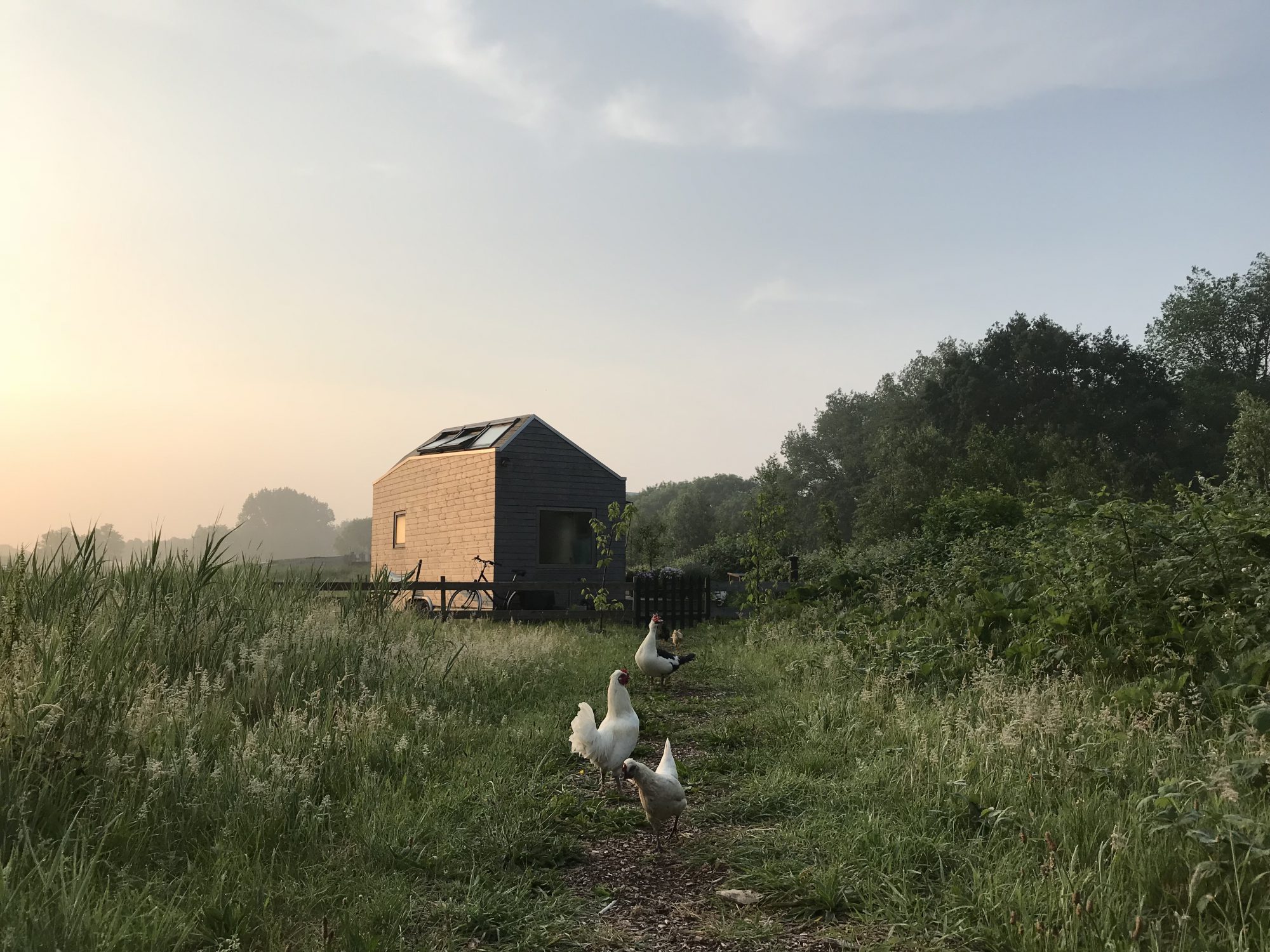

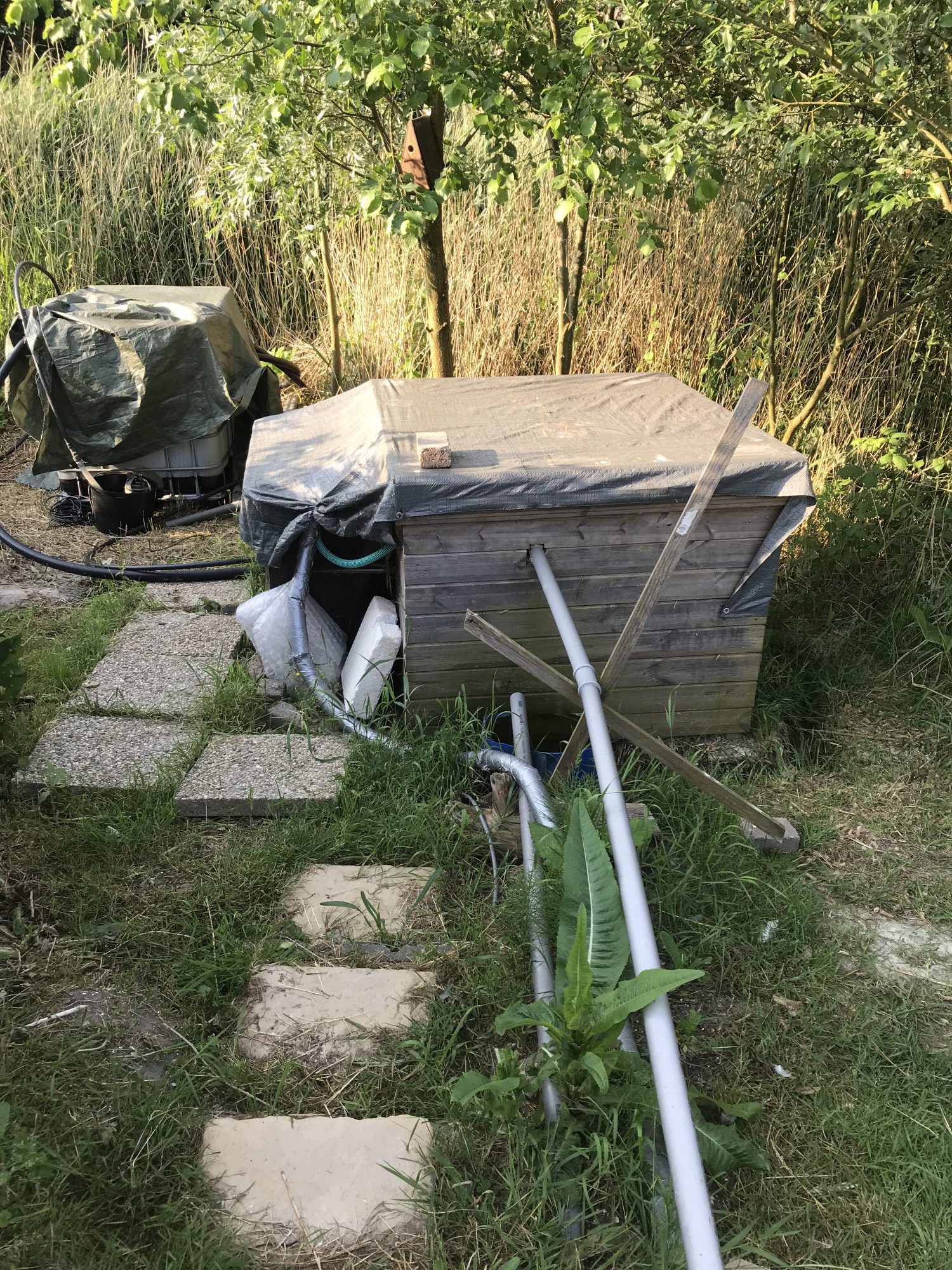
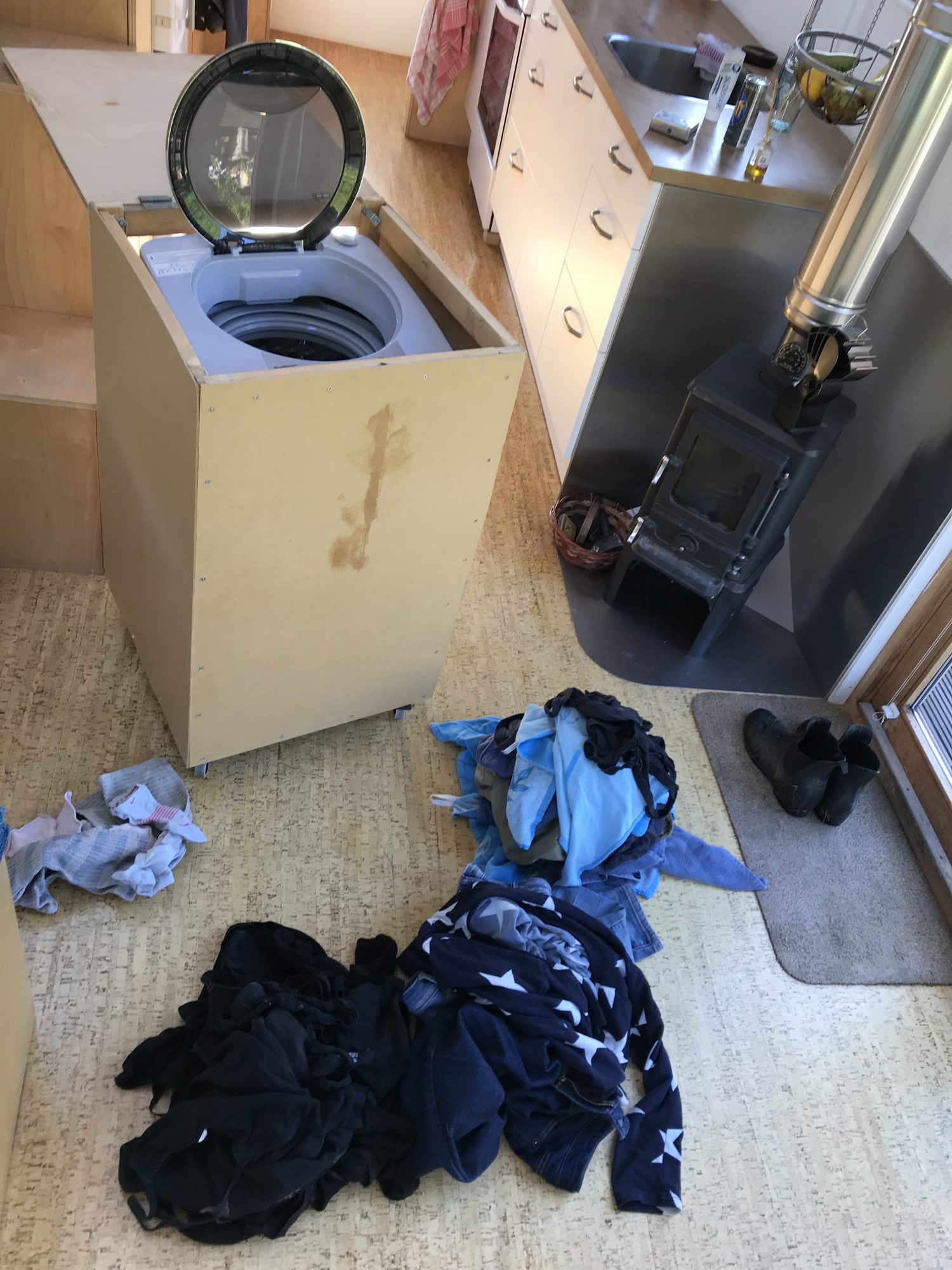
Leave a Reply